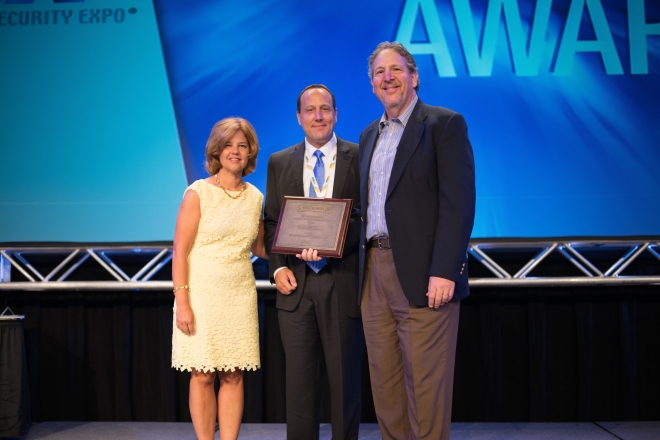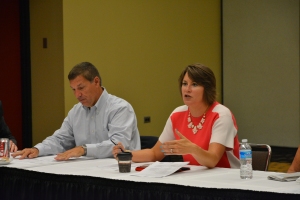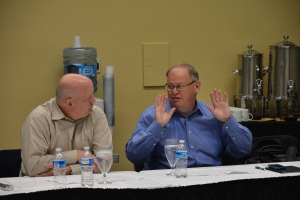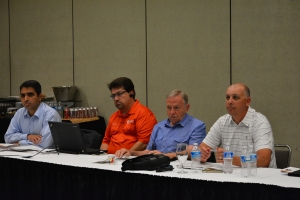Important Notice for Alarm Companies: FCC Clarifies TCPA Restrictions on Robocalling
On July 10, the FCC clarified its Telecommunications Consumer Protection Act (TCPA) rules regarding robocalling. The Declaratory Ruling is effective upon issuance, so to the extent that it impacts any practices currently being followed by alarm companies, they should adjust those practices immediately.
To summarize, the following rulings should be observed by alarm companies:
- Text messages are “calls” subject to TCPA. Alarm companies should be aware that sending a text instead of a call does not sidestep TCPA violations.
- A called party may revoke consent at any time and through any reasonable means. Alarm companies that use autodialers must keep clear records and take revocations of consent very seriously.
- If the wireless number a customer gave you is reassigned to someone else, you MUST stop calling it after the first time you discover the change. Because it is up to the company to be able to demonstrate that it did not have actual or constructive knowledge of reassignment, alarm companies that use any type of autodialing must pay close attention to the numbers they dial and any communications they receive from their customers that may indicate the number has been reassigned.
- Internet-to-phone text messages require consumer consent. An alarm company that may be using software to automatically contact customers is still considered to be “autodialling,” even though it is not using a phone, and must be sure to have the customer’s consent.
Read on for complete details. Thanks to AICC chair Lou Fiore and CSAA Counsel John Prendergast for this report.
On July 10, 2015, the FCC released an Omnibus Declaratory Ruling and Order clarifying numerous issues concerning the application of the Telecommunications Consumer Protection Act (TCPA) and providing guidance on whether certain conduct violates the TCPA. (CG Docket No. 02-278, WC Docket No. 07-135). The Omnibus Declaratory Ruling is effective upon issuance, so to the extent that it impacts any practices currently being followed by alarm companies, they should adjust those practices immediately.
At the outset, we note that the Omnibus Declaratory Ruling does not deal with the Petition for Expedited Declaratory Ruling filed by the Edison Electric Institute and the American Gas Association, on which AICC commented earlier this year. In that petition, EEI and AGA sought clarification that non-emergency, service-related telephone calls and text messages made by utilities are not in violation of the TCPA. AICC filed comments in support, with the caveat that the clarification be broad enough to cover the kind of service-related messages that alarm companies typically send to their customers. While the Omnibus Declaratory Ruling does clarify one particular aspect related in the petition, the clarification seems to apply to financial and healthcare institutions rather than the alarm industry.
Specifically, the FCC exempts from the TCPA’s consumer consent requirements, messages about time-sensitive financial and healthcare issues and then only under certain conditions. “Time-sensitive financial issues” include calls made by financial institutions intended to prevent fraudulent transactions or identify theft, calls involving data security breaches and calls conveying measures consumers may take to prevent identity theft following a data breach. “Healthcare issues” include calls made by healthcare institutions regarding appointment and exam confirmations and reminders, wellness checkups, hospital pre-registration instructions, pre-operative instructions, lab results, post-discharge follow-up intended to prevent readmission, prescription notifications, and home healthcare instructions. While this clarification is limited in scope, we are hopeful that it sets the table for a later application to appointment reminders, etc. by other industries, including alarm companies.
Other issues addressed by the Commission that may impact the alarm industry include:
- Applicability of TCPA to Text Messages. Text messages are “calls” subject to the TCPA, as previously determined by the Commission.Consumer consent is required for text messages sent from text messaging apps that enable entities to send text messages to all or substantially all text-capable U.S. telephone numbers, including through the use of autodialer applications downloaded or otherwise installed on mobile phones. AICC should ensure that its members are all aware that sending a text instead of a call does not sidestep TCPA restrictions.
- Revocation of Consent. The FCC clarifies that a called party may revoke consent at any time and through any reasonable means. A caller may not limit the manner in which revocation may occur. Further, if any question arises as to whether prior express consent was provided by a call recipient, the burden is on the caller to prove that it obtained the necessary prior express consent. Alarm companies that use autodialers must keep clear records and take revocations of consent very seriously. Alarm companies that specify a method of withdrawing consent must understand that other methods of withdrawing consent cannot be denied. For example, if a customer calls a service representative and asks to be removed, a court could reasonably find consent successfully revoked, even if the service representative is not capable of addressing the issue and/or fails to communicate the request to someone who can. Continued autodialing after revocation of consent can result in trebling of the already-steep $1,500 per violation penalty for continued autodials.
- Reassigned Wireless Numbers. Calls to reassigned wireless numbers violate the TCPA when a previous subscriber, not the current subscriber or customary user, provided the prior express consent on which the call is based. The consumer assigned the telephone number dialed and billed for the call (or the non-subscriber customary user of a telephone number included in a family or business calling plan) can give prior express consent to be called at that number. However, where a caller believes he has consent to make a call and does not discover that a wireless number had been reassigned prior to making or initiating a call to that number for the first time after reassignment, the FCC finds that liability should not attach for that first call, but the caller is liable for any calls thereafter. This is the equivalent of the “every dog is entitled to one bite” rule in tort liability. However, the caller, and not the called party, bears the burden of demonstrating: (1) that he or she had a reasonable to basis to believe there was consent to make the call, and (2) that he or she did not have actual or constructive knowledge of reassignment prior to or at the time of this one-additional-call window we recognize as an opportunity for callers to discover reassignment. Because it is up to the company to be able to demonstrate that it did not have actual or constructive knowledge of reassignment, alarm companies that use any type of autodialing must pay close attention to the numbers they dial and any communications they receive from their customers that may indicate the number has been reassigned. Just recently, Time Warner Cable was found in violation of the TCPA and the plaintiff was awarded treble damages because she told Time Warner Cable the person they were attempting to contact was not at this number and they did not stop calling.
Even for this one free call, the burden is on the business to show that it once had permission to call the number and did not know about the reassignment. Treble damages apply for violations
The FCC also clarified that the fact that a consumer’s wireless number is in the contact list on another person’s wireless phone, standing alone, does not demonstrate consent to autodialed or prerecorded calls, including texts. This typically involves an app that goes through the consumer’s contact list and auto-invites the contacts to download the app as well, and we suspect it’s not an alarm industry practice.
- Internet-to-Phone Text Messages: Internet-to-phone text messages require consumer consent. Alarm companies that may be using software to automatically contact customers is still considered to be “autodialing,” even though it is not using a phone, and must be sure to have the customer’s consent.
The Commission also addressed the following issues:
Definition of an Autodialer. Any equipment that has the requisite “capacity” to dial random and sequential numbers is an autodialer and is therefore subject to the TCPA. Callers cannot avoid obtaining consumer consent for a robocall simply because they are not “currently” or “presently” dialing random or sequential phone numbers. The FCC acknowledges, however, that the definition of “autodialer” does not extend to every piece of malleable and modifiable dialing equipment that conceivably could be considered to have some capacity, however small, to store and dial telephone numbers. For example, a handset with the mere addition of a speed dial button is not an autodialer. Further, there must be more than a theoretical potential that the equipment could be modified to satisfy the “autodialer” definition. Thus, the FCC states that although it might be theoretically possible to modify a rotary-dial phone to such an extreme extent that it would satisfy the definition of autodialer, “such a possibility is too attenuated for us to find that a rotary-dial phone has the requisite “capacity” and therefore is an autodialer.”
Call-Blocking Technology. The Communications Act and the FCC’s rules do not prohibit carriers or Voice over Internet Protocol (VoIP) providers from implementing consumer-initiated call-blocking technology that can help consumers stop unwanted robocalls.
Collect Calls. With regard to collect call services, the FCC clarifies that, where a caller provides the called party’s phone number to a collect call service provider and controls the content of the call, he is the maker of the call rather than the collect-call service provider who connects the call and provides information to the called party that is useful in determining whether he or she wishes to continue the call.
Additionally, collect calling service providers that use prerecorded messages, on a single call-by-call basis, to provide call set-up information when attempting to connect a collect call to a residential or wireless telephone number may do so under the TCPA without first obtaining prior express consent from the called party. The person who dials the number of the called party or the number of a collect calling service provider in order to reach the called party, rather than the collect calling service provider who simply connects the call, “makes” the call for purposes of the TCPA.
Platform Provider Liability. Whether a person who offers a calling platform service for the use of others has knowingly allowed its client(s) to use that platform for unlawful purposes may be a factor in determining whether the platform provider is so involved in placing the calls as to be deemed to have initiated them.
























